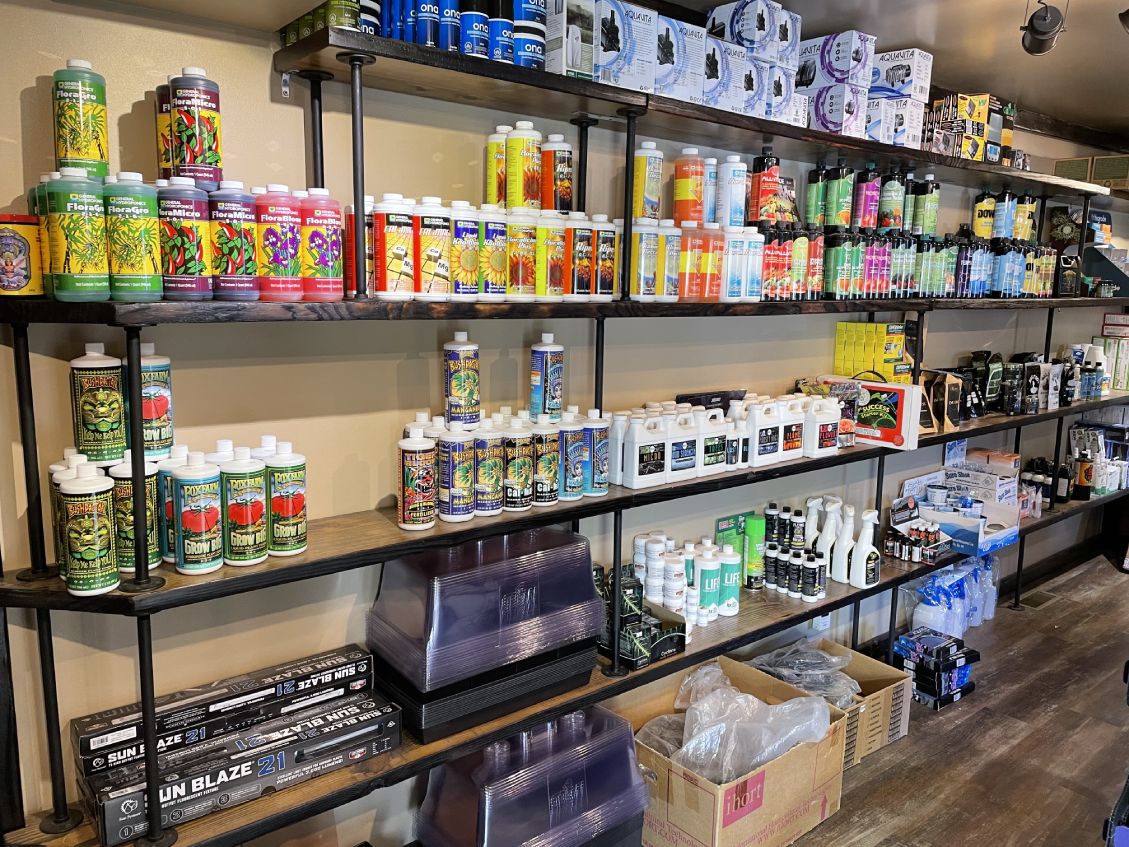Unravel the Keys of Effective Planting with The Indoor Earthworm
Unravel the Keys of Effective Planting with The Indoor Earthworm
Blog Article
Enhance Your Gardening Abilities With Hydroponics: Checking Out Advantages
The practice of growing plants without dirt may seem unusual at first, but its advantages are worth thinking about. As we dive right into the globe of hydroponic horticulture, we discover a huge selection of benefits that not only improve plant growth however likewise offer one-of-a-kind chances for individuals looking to raise their gardening skills.
Advantages of Hydroponic Gardening
Hydroponic gardening uses numerous advantages due to its efficient use sources and accurate control over plant growth conditions. By giving plants with straight accessibility to nutrients dissolved in water, hydroponic systems get rid of the need for soil, lowering water use by as much as 90% compared to conventional soil-based cultivation. This effective nutrient distribution technique likewise enables faster plant growth prices and higher yields, making hydroponic gardening an appealing option for making the most of limited space and sources.
Furthermore, the controlled environment of hydroponic systems enables farmers to enhance elements such as humidity, ph, and temperature degrees, leading to much healthier plants with minimized risk of diseases and bugs. This accurate control over expanding problems not just promotes much faster and a lot more consistent plant development however also permits year-round growing no matter outside climate condition.
Faster Plant Growth With Hydroponics
Using innovative nutrient distribution systems, hydroponic gardening facilitates sped up plant development prices compared to typical soil-based cultivation approaches. In hydroponic systems, plants have direct accessibility to important nutrients dissolved in water, allowing for ideal absorption without the demand to expend power developing substantial origin systems to look for nutrients in the soil. This effective nutrient distribution mechanism allows plants to reroute their power towards robust vegetative development and respected fruiting or blooming.
Moreover, the regulated setting in hydroponic configurations ensures that plants get the perfect problems for development consistently. Variables such as temperature, light, ph, and humidity degrees can be diligently kept an eye on and adapted to produce the optimal expanding environment for each plant variety. By getting rid of the irregularity existing in soil-based gardening, hydroponic systems provide plants with a stable and beneficial setup that maximizes their growth possibility.

Water Conservation Perks
Offered the efficient nutrient delivery mechanism and controlled setting of hydroponic systems, one considerable benefit worth checking out is the conservation of water resources. Hydroponic horticulture consumes to 90% much less water contrasted to traditional soil-based gardening techniques. This significant reduction is credited to the closed-loop system where water is recirculated and recycled, minimizing wastage. In standard soil gardening, water is lost via dissipation, drainage, and why not find out more percolation beyond the root area, resulting in inefficiencies. Nonetheless, in hydroponics, the nutrient option is supplied directly to the plant roots, ensuring optimal water uptake and minimizing water loss.
In addition, hydroponic systems permit for specific control over water use, with the capability to change and keep an eye on nutrient degrees based upon plant requirements. This targeted method avoids overwatering, a common problem in soil-based horticulture, additional contributing to water conservation efforts. By taking full advantage of water performance and reducing waste, hydroponic gardening emerges as a sustainable and eco-friendly choice for individuals looking to lower their water usage in gardening methods.
Year-Round Plant Cultivation

By managing elements such as nutrient, light, and temperature levels, hydroponic systems enable plants to thrive no matter outside weather condition conditions. This regular atmosphere allows for continuous plant development and harvest, supplying a trusted supply of fresh fruit and vegetables even in the dead of winter.
In addition, the capability to cultivate plants year-round in hydroponic systems opens chances for growers to trying out a broader range of plants, broaden their growing periods, and increase total efficiency. This flexibility and dependability make year-round plant cultivation in hydroponics a beneficial tool for both hobbyists and business cultivators aiming to maximize their horticulture efforts.
Enhancing Gardening Skills With Hydroponics
Creating efficiency in hydroponics can empower garden enthusiasts with a deeper understanding of plant growing methods and boost their overall gardening skills. Hydroponic systems provide a controlled atmosphere where garden enthusiasts can closely keep track of and readjust factors such as nutrient levels, pH balance, and illumination conditions to maximize plant development. By grasping these components, gardeners can fine-tune their skills and expertise, causing even more effective harvests and much healthier plants.
In addition, hydroponic horticulture challenges conventional concepts of soil-based farming, urging garden enthusiasts to assume outside package and trying out innovative growing methods. This experimentation can promote imagination and analytical skills, as gardeners find out to adjust and troubleshoot problems special to hydroponic systems. In addition, the performance of hydroponic arrangements, such as upright yards or nutrient film strategies, can show garden enthusiasts just how to make best use of room and sources properly.
Verdict
Finally, hydroponic horticulture provides various benefits such as faster plant development, that site water preservation, and year-round cultivation. By exploring the benefits of hydroponics, people can boost their horticulture skills and achieve effective plant development. Consider incorporating hydroponic strategies right into your horticulture practices to make the most of performance and productivity in your yard.
As we dig into the globe of hydroponic gardening, we reveal a wide variety of benefits that not just boost plant growth yet also offer unique possibilities for people looking to elevate their horticulture abilities.Making use of advanced nutrient shipment systems, hydroponic horticulture helps with accelerated plant development rates contrasted to conventional soil-based growing methods. By removing the irregularity present in soil-based gardening, hydroponic systems supply plants with a steady and desirable setting that optimizes their growth possibility.
Enhancing the sustainability and performance of gardening methods, year-round plant farming in hydroponic systems supplies a constant and reliable technique for growing a range of plants no matter of seasonal constraints. The Indoor Earthworm.In final thought, hydroponic horticulture offers various advantages such as faster plant development, water conservation, and year-round growing
Report this page